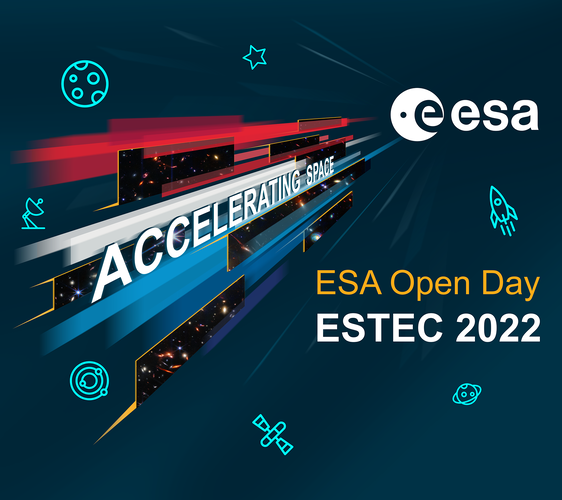
Copernical Team
Spiralling stars provide a window into the early Universe
 Image:
Image:
Astronomers have been bemused to find young stars spiralling into the centre of a massive cluster of stars in the Small Magellanic Cloud, a satellite galaxy of the Milky Way. The outer arm of the spiral in this huge, oddly shaped stellar nursery – called NGC 346 – may be feeding star formation in a river-like motion of gas and stars. This is an efficient way to fuel star birth, researchers say.
The Small Magellanic Cloud has a simpler chemical composition than the Milky Way, making it similar to the galaxies found in the younger Universe, when heavier elements were more scarce.
How space helps connect everyone everywhere

Staying in touch with each another always, no matter whereabouts on Earth, is crucial for everything from driverless cars to remote healthcare, electronically enabled commerce, tele-education and remote working.
Europe’s tallest ever communications satellite launched
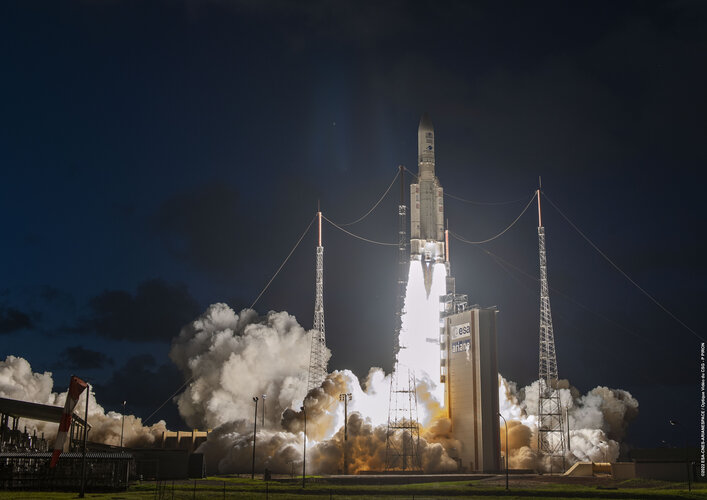
The fourth Spacebus Neo satellite to benefit from ESA’s Neosat programme has launched into space on board the second Ariane 5 launch mission of 2022.
What's next for Artemis I after 2nd scrub?
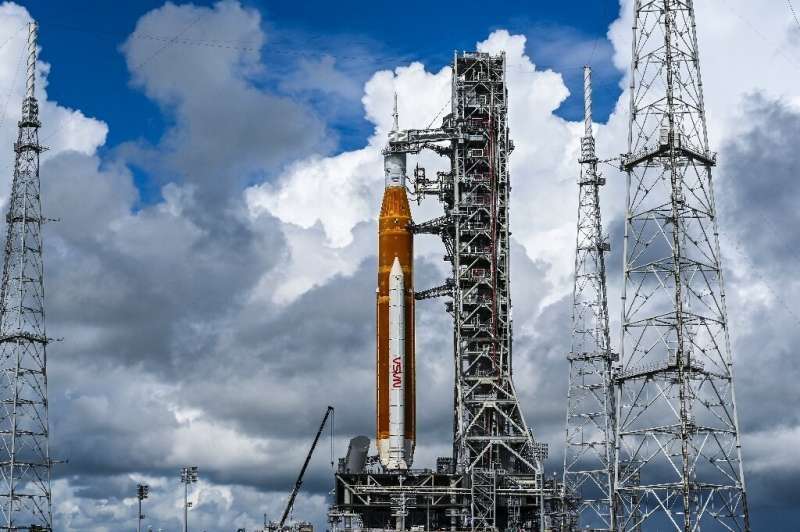
What went wrong with Artemis I was on the launch pad at Kennedy Space Center, so that's where NASA has decided to try and fix it.
On Tuesday, mission managers announced they would hold off rolling back to the Vehicle Assembly Building the 5.75 million-pound, 322-foot-tall combination of the Space Launch System rocket, Orion capsule and mobile launcher.
Instead, they will stay at Launch Pad 39-B to work on the source of the Saturday's scrub, which was the second scrub of NASA's attempt to send the uncrewed Artemis I on a multiweek mission to the moon. It's the first step in its eventual plans to return humans, including the first woman, to the lunar surface for the first time since 1972.
Pregnancy in space: Studying stem cells in zero gravity may determine whether it's safe
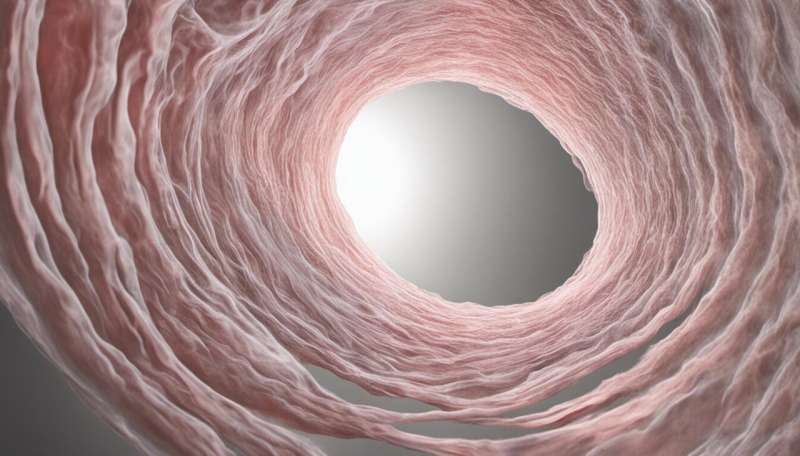
Space is a hostile, extreme environment. It's only a matter of time before ordinary people are exposed to this environment, either by engaging in space tourism or by joining self-sustaining colonies far away from Earth.
To this end, there needs to be a much better understanding of how the environmental dangers of space will affect the biology of our cells, tissues, organs, and cognition. Crucially for future space colonies, we need to know whether we can easily reproduce in environments other than those found on Earth.
The effects of radiation on our cells, producing DNA damage, are well documented. What's less clear is how lower levels of gravity, what scientists call microgravity, will affect the mechanisms and rhythms taking place within our cells.
Scientists are only just beginning to investigate how activity in our cells might be affected by exposure to microgravity. Crucially, experiments on embryonic stem cells, and models of how embryos develop in their first few weeks in space, will help us determine whether it's possible for humans to produce offspring in the extraplanetary colonies of the future.
Artificial gravity provides partial protection for biology in space

Space travel to the moon, Mars, and beyond can expose astronauts to extreme conditions, causing potential health issues. To prepare for future long-duration missions, NASA studies how the effects of space—changes in gravity, radiation, and more—impact "model organisms," or other kinds of life that are biologically similar to humans. New findings from a study using fruit flies on the International Space Station suggest that space travel has an impact on the central nervous system, but that artificial gravity provides partial protection against those changes.
"Microgravity poses risks to the central nervous system, suggesting that countermeasures may be needed for long-duration space travel," said Dr. Janani Iyer, a Universities Space Research Association (USRA) project scientist at NASA's Ames Research Center in California's Silicon Valley and an author on the paper published today in Cell Reports.
ESA–EGU Excellence Award 2023 open for nominations
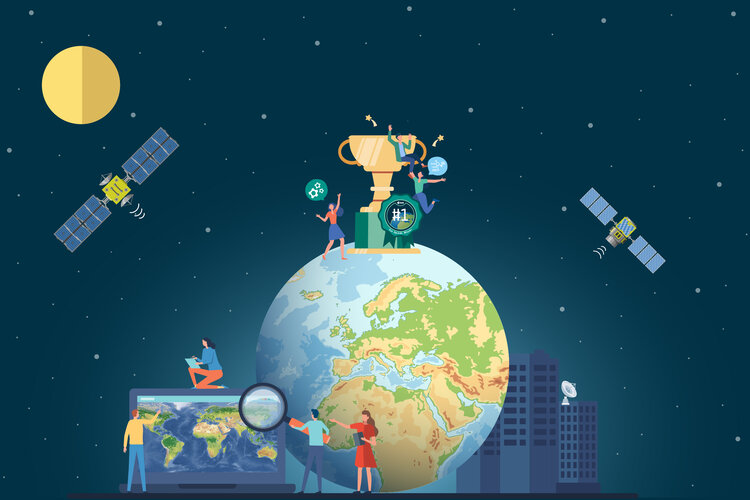
Following the success of the inaugural ESA–EGU Earth Observation Excellence Award in 2021, it’s now time to lodge your nomination for someone or for a team that deserves recognition for their innovative use of Earth observation. The call for nomination opens today and will close on 7 December.
The award winners will be announced and presented at the European Geosciences Union (EGU) General Assembly, which takes place on 23–28 April 2023.
New plasma tech for oxygen, fuel and fertiliser from Mars' atmosphere
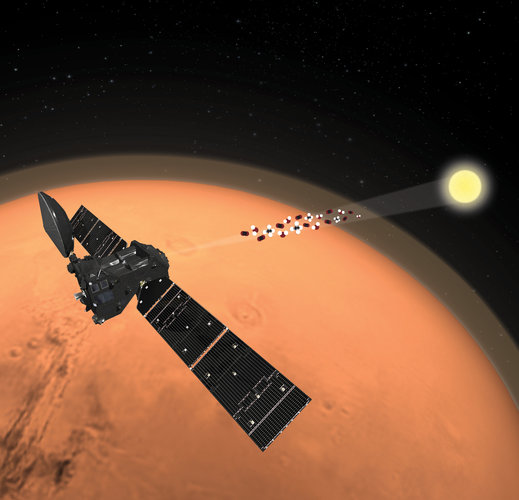
Using novel plasma reactors, researchers have shown that it is possible to extract key ingredients from Mars' carbon dioxide-rich atmosphere to provide future astronauts with oxygen, fuel and fertiliser. This technological leap could make it viable for humans to live on Mars.
Astronomers obtain sky's large-field X-ray maps
 Chinese astronomers have released the world's first collection of large-field X-ray maps of the sky, captured by a small satellite put into orbit last month.
The Wide-field X-ray Telescope, launched into orbit on July 27 by a solid-propellant-fuelled rocket, is the first large-field X-ray imaging telescope, according to the National Astronomical Observatory of China.
After a four-day
Chinese astronomers have released the world's first collection of large-field X-ray maps of the sky, captured by a small satellite put into orbit last month.
The Wide-field X-ray Telescope, launched into orbit on July 27 by a solid-propellant-fuelled rocket, is the first large-field X-ray imaging telescope, according to the National Astronomical Observatory of China.
After a four-day 
